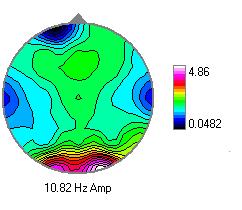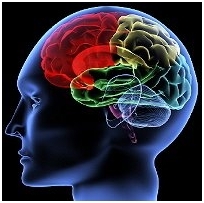What is rTMS?
Transcranial magnetic stimulation (TMS) is a non-invasive method of exciting neurons in the brain using a controlled, weak electrical current created by rapidly changing magnetic fields. Repetitive transcranial magnetic stimulation (rTMS), focusing the magnetic fields in a specific area repeated over a period of time and/or during multiple sessions, has shown promise in several clinical studies for the treatment of mental health disorders such as
• depression
• Bipolar
• OCD
• schizophrenia
• reduced cravings for cocaine
• Social Phobia
• Panic
• Anxiety
TMS and does not have the pain and potentially devastating side effects of Electroconvulsive Therapy (ECT or "shock therapy").


What does it feel like to receive TMS?
Generally TMS produces a slight knocking or tapping sensation on the head. This is also associated with a tapping sound produced by the TMS device. When administered at some stimulation sites it can cause contraction of the muscles of the scalp and occasionally the jaw. Mild headache and transient lightheadedness may sometimes result from TMS. These symptoms usually resolve by themselves shortly after the treatment is over.
Do you need to get anesthetized for TMS?
No. TMS is an outpatient procedure and does not require anesthesia or an IV. It can be administered in a physician's office or clinic.
Does it hurt?
Approximately 5-10% of patients experience discomfort at the site of stimulation. In general this has not been a problem when administering TMS to patients volunteering for research studies.
How long does a treatment session last?
It depends on the research protocol, but generally each session takes about a half an hour.
How many times do you need to receive TMS?
Research protocols vary in the treatment duration, but most require at least two weeks of daily stimulation given five times per week, some require up to 6 weeks.

 Brazilian Center of Transcranial Magnetic Stimulation - CBrEMT
Brazilian Center of Transcranial Magnetic Stimulation - CBrEMT